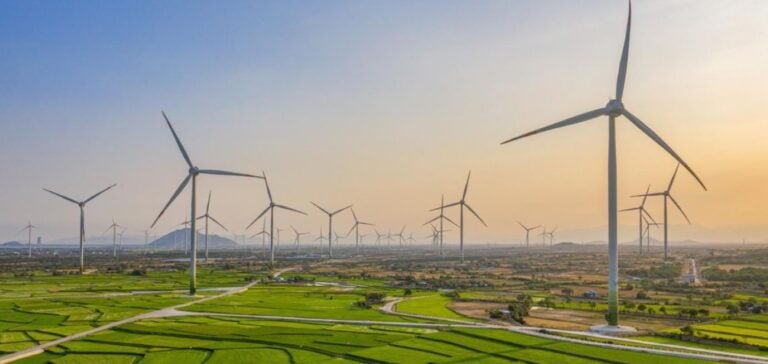In 2024, Europe’s largest economy, Germany, reached a major milestone in energy policy. According to the German energy regulator, renewable energy sources accounted for 59% of the total electricity production, compared to 56% in 2023. This figure represents a historic record for the country.
Onshore and offshore wind energy remain the leading source of electricity, contributing 31.9% to total production. This share has remained stable compared to the previous year. Conversely, solar energy saw a significant increase, accounting for about one-seventh of Germany’s energy mix. This growth was driven by an exceptionally sunny summer and a substantial rise in installed capacity.
A Policy of Coal Reduction and Increased Reliance on Natural Gas
At the same time, Germany continues its strategy to phase out coal. In 2024, the share of this historically dominant energy source fell below 23%, compared to 26% the previous year. This decline aligns with the government’s policy to eliminate coal entirely by 2035.
However, natural gas, supported by competitive prices, increased its share by 8.6%, reaching 13.2% of total production. The German government, led by Olaf Scholz, continues to rely on this fossil fuel to address the intermittency of solar and wind power.
Energy Transition and Increased Dependence on Imports
The year 2024 also marked the complete phase-out of nuclear energy in Germany, following the closure of its last plants in 2023. This transition resulted in a 13.8% increase in electricity imports, while exports declined by 10%. France became Germany’s leading electricity supplier, benefiting from competitive wholesale prices.
Despite this growing dependence on imports, the average electricity price in Germany saw a significant drop in 2024, after reaching record levels during the energy crisis triggered by the war in Ukraine in 2022.
Criticism and Political Challenges Ahead
The government’s ambitious goal to achieve 80% renewable energy in gross electricity consumption by 2030 continues to spark debate. Currently, Spain has reached 51%, Italy 37%, and France 25%, according to the Electricity Maps platform.
The energy policy pursued by the Social Democrats and Greens has been heavily criticized by the conservative opposition ahead of the legislative elections. The CDU, leading in the polls, has criticized the rapid development of wind turbines and suggested, in some cases, reopening nuclear plants—a scenario deemed unrealistic by most experts.






















